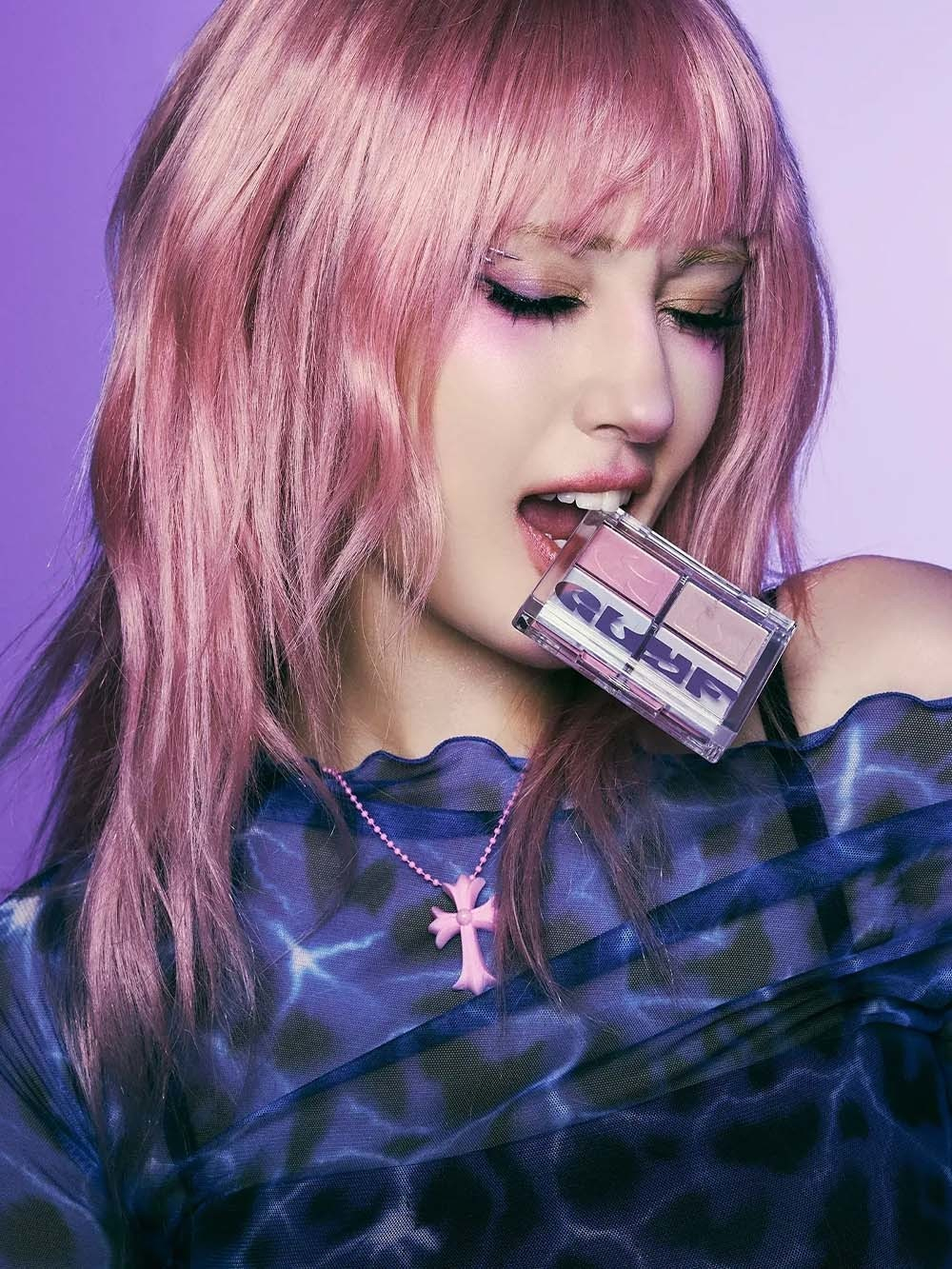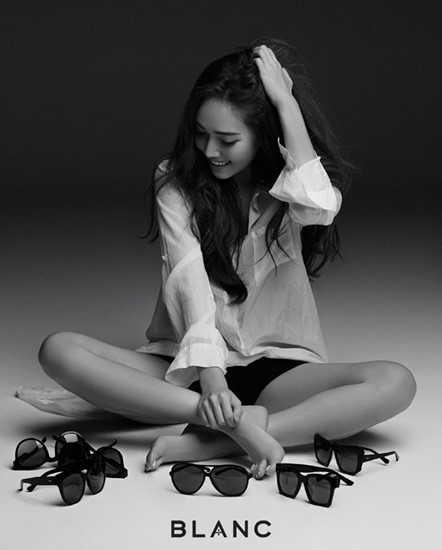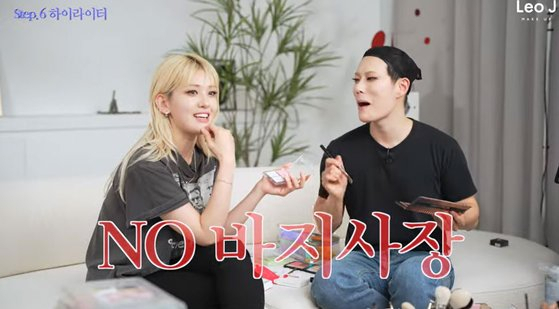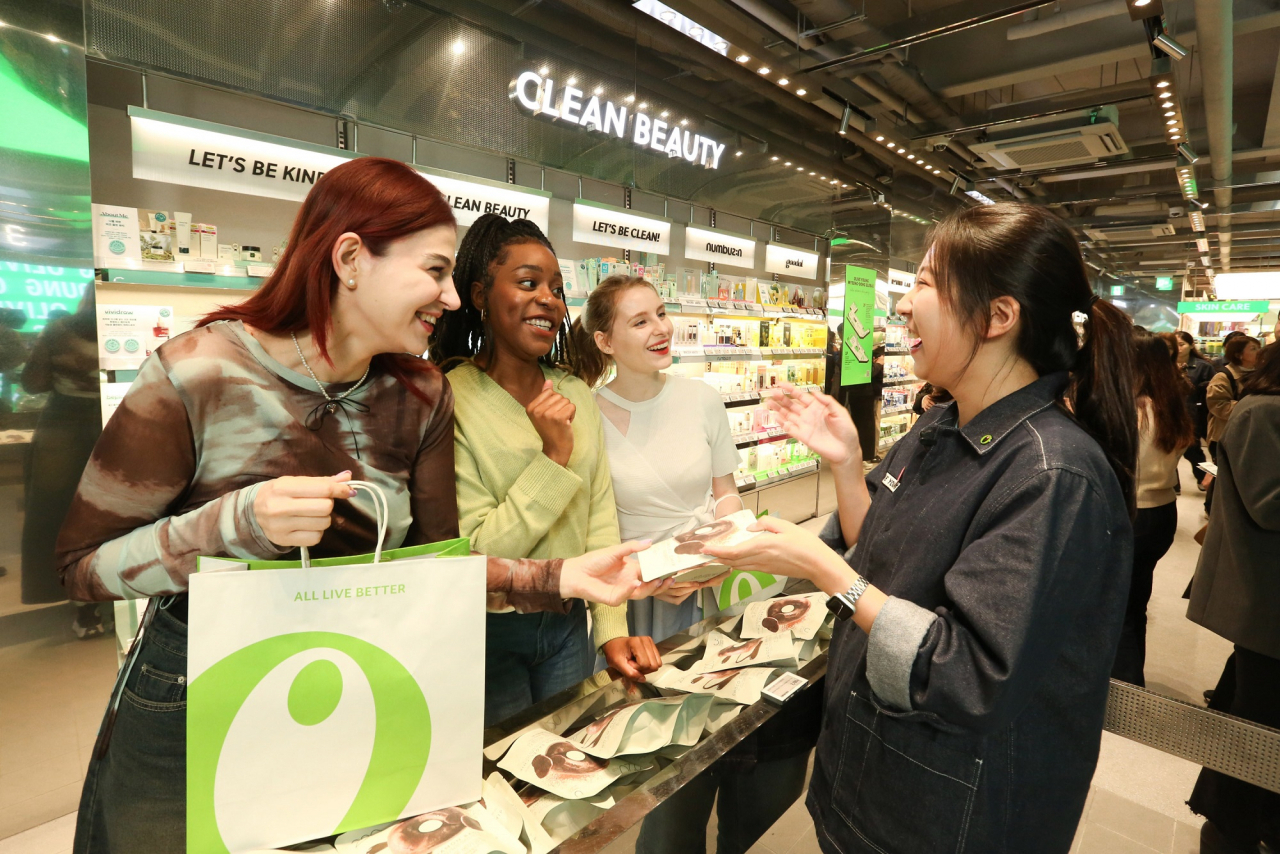 |
K-pop star Jeon Somi promotes her brand, GLYF. (GLYF) |
K-beauty is trending globally.
Many Korean celebrities, particularly K-pop stars, command vast, devoted fan bases, influencing fashion and beauty trends.
Combine the two and one might naturally assume there would be numerous cosmetic brands launched by Korean stars, similar to Rihanna’s Fenty Beauty, Kylie Jenner's Kylie Cosmetics or Selena Gomez's Rare Beauty in the US.
The reality, however, is quite different.
Korean stars might be the faces of top beauty brands, but they rarely pursue their own entrepreneurial interests in the field.
Why?
 |
Former Girl's Generation member Jessica promotes her fashion brand Blanc in 2014. (BLANC) |
‘Not worth risking main job’
In an article analyzing the trends of US celebrities launching their beauty brands, Harvard Business Review identified four key principles that contribute to the success of celebrity brands. They are: a strong social media following, a good fit between the celebrity and the product category, active engagement with fans and the ability to create momentum.
Given these factors, it seems logical to say that K-pop stars have what it takes to dominate the cosmetics market.
They are known for their devoted fan bases, massive social media followings and admirable and flashy makeup worn on and off the stage. They also frequently interact with fans through various channels and fan events. Their agency-produced shows on YouTube offer a natural platform for product exposure.
Additionally, South Korea, as a rising beauty industry powerhouse, boasts a robust network of local companies that can handle product design, development and manufacturing through outsourcing contracts. This means launching a new cosmetics brand is relatively easy here, without the need for in-house manufacturing facilities or product design capabilities.
The number of such local cosmetics factories and labs stood at 4,548 in 2022, up 56 percent from 2019.
But according to Choi Wan, a local cosmetics expert, K-pop stars deem launching a personal brand too risky, given the possibility of drawing criticism from fans and conflicting with existing endorsement deals.
"Unless the artist has a strong vision or philosophy for their cosmetic brand, they might be better off focusing on their K-pop career," said Choi who was formerly a marketing executive at Amore Pacific, a Korean cosmetics giant, and is currently an Industry-Academic Cooperation Foundation professor at Chung-Ang University.
"Their existing career path can yield a more reliable output,” he added.
In the K-pop scene, where most stars are part of groups, pursuing solo business ventures can be viewed as a distraction or even a display of disloyalty.
Jessica, a former member of Girls' Generation, presents a cautionary tale of a K-pop star who tried to go solo into a business venture.
In 2014, she asserted that she was "forced out" of the group following conflicts over launching her fashion brand Blanc while still a member of Girls' Generation.
Her decision to launch her brand was met not only with disapproval from her agency but also with criticism from the group's fans, who accused her of prioritizing personal gain over loyalty to the band.
Since departing from Girls' Generation, Jessica has primarily focused on her fashion career in China, without much involvement in the music scene in Korea.
Another hurdle for K-pop celebrities with personal brands is the potential loss of endorsement opportunities.
"Solo artists will be restricted from accepting other beauty endorsements," said an insider from a K-pop entertainment agency. "For group members, it becomes even more challenging, as their brands could limit the group's endorsement options."
The official added that launching a beauty brand can be particularly difficult for K-pop idols at their peak, with their packed schedules.
 |
K-pop star Jeon Somi talks about her dedication to her new cosmetics brand, GLYF. (Screenshot from LeoJ's YouTube channel) |
Tough market, tough consumers
British actress Millie Bobby Brown faced backlash for a staged skincare routine promoting her teen cosmetics line, Florence by Mills. The incident forced her to delete the video and apologize.
Her case shows that building brand authenticity is crucial for celebrity beauty brands and this is particularly challenging in Korea.
Choi explained that for beauty brands, fans should be able to believe they can emulate their idols' looks through the brand.
Nevertheless, he pointed out that accomplishing that is becoming more and more challenging, because Korean consumers are well-informed.
“Korean consumers understand that flawless skin and cool looks are often the result of professional treatments, not solely makeup,” Choi said.
Jeon Somi, a K-pop solo artist, recently launched her makeup brand, GLYF, with a highlighter priced at 43,000 won ($30). Even before launch she encountered criticism over its high price and doubts about her actual involvement in its development.
Jeon addressed such authenticity concerns on a popular beauty YouTube channel hosted by LeoJ. In the video, she denied being a mere figurehead and explained the product's inspiration: the need for a single, versatile highlighter to meet her demanding stage makeup needs.
"To ensure this product addressed a common issue, I even held a meeting with fellow K-pop idols at my home," she said while elaborating on her research process.
 |
Visitors look at products in a CJ Olive Young Store in Seoul. (CJ Olive Young) |
The state of the Korean cosmetics market also presents challenges for aspiring celebrity beauty brands.
According to the Ministry of Food and Drug Safety, the number of small cosmetics manufacturers skyrocketed 78 percent from 2019 to 2022, reaching 28,015.
With each manufacturer potentially creating multiple brands, the actual number of small brands is likely much higher.
There is also a high rate of business closure, with industry insiders estimating that over 3,000 small and medium-sized cosmetics companies shut down in 2022, compared to around 500 in 2021.
"The rise of ODM and OEM (outsourced research and production) services has made entering the Korean cosmetics market incredibly easy," said a cosmetics startup founder on the condition of anonymity. "However, distribution channels are extremely limited. Securing placement in CJ Olive Young is a major accomplishment, but otherwise, brands face fierce competition with limited chances of survival."
CJ Olive Young is Korea's top health and beauty retailer.
A beauty industry insider who has experience doing business in the US told The Korea Herald that the intense level of competition in Korea means it is not a good anchor market for celebrities.
"For these (celebrity) brands to be successful you need to have an anchor market, meaning for someone like Selena Gomez, the US is her anchor market," the insider explained. "She has strong proof of her concept and sales track record before expanding globally, which every beauty brand eventually needs to do to scale up."
Despite these hurdles, Choi believes that a successful Korean celebrity beauty brand akin to Fenty Beauty is still possible, provided that the celebrity entrepreneur is willing to navigate the risks and invest in long-term value creation.
"After all," he added, "that is the essence of any business venture."







![[Today’s K-pop] Blackpink’s Jennie, Lisa invited to Coachella as solo acts](http://res.heraldm.com/phpwas/restmb_idxmake.php?idx=644&simg=/content/image/2024/11/21/20241121050099_0.jpg)